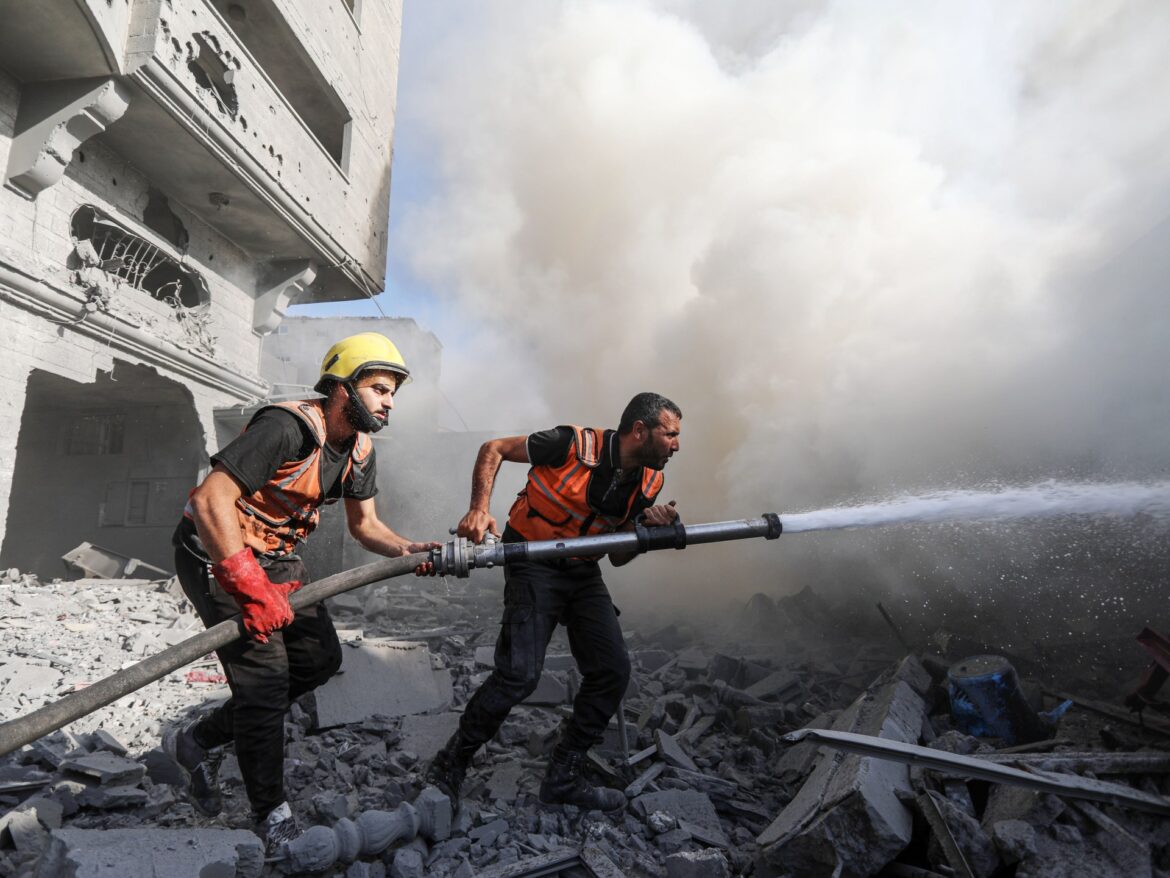Gaza City – Ibrahim Abu Rish feels fresh, thanks to a hairdresser at al-Shifa Hospital who gave him a haircut.
The civil protection rescuer, who has been doing this job for 15 years, has not returned home for more than a month.
“My house is in Karameh and the whole neighborhood was destroyed,” he said. “I have not yet had the opportunity to see my wife and children, who are displaced. My wife calls me several times a day, but I can’t answer her every time.
Abu Rish, 35, has witnessed things in the past month worse than anything he could have imagined. Israeli bombardment of the blockaded Gaza Strip has killed more than 10,500 Palestinians since October 7, most of them women and children. Israeli air raids have targeted homes, residential buildings, entire neighborhoods, schools, mosques, churches and hospitals.
“This war is merciless,” Abu Rish said. “We cannot guarantee our own safety.”
At least seven rescue workers were killed.
Abu Rish’s colleague, Mohammed al-Ghaleez, and five other civilians were killed in an Israeli airstrike on the al-Tuffah police station on Salah al-Din Street in Gaza City.
“The hardest thing I saw were the torn bodies of the children, the children under the rubble that we cannot reach,” Abu Rish said. “Corpses litter the streets. The smell of this city is that of rotting and decomposing bodies.
He also saw people desperate to get clean water to the pipes used by civil protection to put out fires.
More than 2,660 people are missing under the rubble, including 1,350 children.
“It drives me crazy that I can’t save these people,” he said. “I had to tell people we can’t save them. I could see them, but there was no way to reach them. Imagine waiting for death like that.
Civil defense is seriously lacking the heavy machinery and equipment needed to move rubble, said his colleague Musleh al-Aswad. Their vehicles are rusted, and while they don’t break down due to a mechanical problem, damaged roads and shrapnel hamper their operations.
“We don’t have the resources,” says the forty-year-old. “No fire trucks, vehicles, ambulances, machines. People use metal knives and their hands to dig through the rubble.
Tractors and excavators are rare and, even if available, they require fuel to operate, which is not available.
Telecommunications outages add to stress and prevent rescue teams from coordinating.
“I have been on the ground since 2007 and in every war since then,” al-Aswad said. “But this…what’s happening to us is unprecedented. »
He sees his family every few days, spends half an hour with them and makes sure they are okay before changing clothes to leave.
“We are certainly afraid in our profession, but our determination is stronger,” he said. “We took an oath to protect our people.”
Abu Rish said there has not been a single road that Israeli warplanes and tanks have not targeted, and when they strike, it is always more than once.
“We want a ceasefire and for the wounded to be transferred outside for treatment and for all this to end,” he said. “Enough.”



